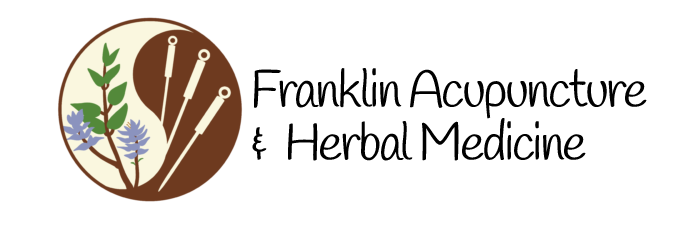Menopause is a natural, physiological cycle that occurs in all women. Conventional medical treatments only address various symptoms and signs associated with menopause. However, symptoms and signs are just one part of the whole picture.
Acupuncture and Chinese medicine understand that symptoms and signs are merely indications of an imbalance deep within the body. This 5,000 year-old healing art focuses upon correcting underlying imbalances that have occurred over the years. These imbalances, if left unchecked, will result in a variety of symptoms and signs normally associated with a Western diagnosis of menopause.
Acupuncture and a woman’s natural process
Menopause signifies “a change” within a woman’s life. This change occurs because a woman’s body chemistry is shifting. Chinese medicine recognizes this chemistry change as a natural process.
Estrogen is similar to what acupuncturists call Jing Qi. Jing Qi is like a gift that is given to all of us at the time of conception. It is the battery that provides us with the basic energy to power all our life functions. When Jing Qi is abundant, our ability to adapt to disease, illness and stress is optimal.
As we age, our supply of Jing Qi energy is slowly drained. Generally, Jing Qi naturally begins to decline between the ages of 35 to 60, although some people drain it faster than others. When Jing Qi declines, the Organ Systems within our body become unbalanced. This leads to various symptoms and signs, such as graying hair, loss of libido, weakness of knees, urinary difficulty, poor memory, backache and fatigue.
Another factor that can contribute to menopause is an imbalance in Yin and Yang energies. One possible scenario is an imbalance caused by the slowing of the flow of Yin. Yin can be thought of as the cooling system of the body. When this cooling system declines, heat symptoms will naturally arise, leading to night sweats, restlessness, hot flashes, mood swings, heart palpitations and insomnia.
- Over working
- Overexertion
- Over doing it
- Poor dietary habits
- Inherited weakness
- Burning the candle at both ends
- Siting or standing for long periods
- Excessive activities (sexual, alcohol, drugs, late nights)
The decline of Yang energy can also lead to imbalance. Yang represents the warming and metabolizing functions of the body. When Yang is unbalanced, symptoms may include water retention, cold hands and feet, weight gain, edema, indigestion, hypertension, or raised cholesterol levels.
Left untreated, a decline and imbalance of Jing, Yin or Yang will lead to the symptoms and signs that are normally associated with a Western diagnosis of menopause.
What can an acupuncturist do?
An acupuncturist will conduct a thorough evaluation and a complete health history. The symptoms, signs and other information that is gathered are pieces of the diagnostic health puzzle. Putting together this puzzle allows a practitioner to develop a unique treatment plan that will address each patient’s individual concerns.
When treating menopausal symptoms, an acupuncturist must first determine where the energy has changed, and what Organ Systems have become unbalanced. Once this is known, various natural therapies such as acupuncture, herbs, meditation, Qi Gong and diet can be used to correct the imbalances.
Acupuncture and Chinese medicine offer a safe, natural, drug-free and effective way to address menopause. Treatment supports the healing energies of Jing, Yin and Yang, providing the body with the building blocks it needs in order to nourish, heal, and regain balance.

